
Get ready to go back to school with resources from Charlotte Mecklenburg Library
August 3, 2021
Desplácese hacia abajo para ver la versión en español
Summer is coming to an end and students across our area are gearing up to return to school! Whether you are sending your child off to school for the first time, preparing for college admissions, or somewhere in between, Charlotte Mecklenburg Library is here to support all your student’s back-to-school needs.
Virtual Learning Opportunities
Did you know that the Library provides a multitude of virtual learning programs to enrich your child’s academic and social skills? The calendar is filled weekly with school-age programming you can enjoy from anywhere! After registering, you will receive a Zoom link to participate in the program. If your child can’t make the live programs, you’re invited to participate at your convenience by viewing pre-recorded programs on our Digital Branch. Our specialized content is designed to elevate and extend your student’s learning. Virtual programming is not limited to children in elementary school, it’s available for all age groups. Teens can join in writing groups, book clubs, trivia sessions and gaming sessions such as Dungeons and Dragons. While you get into your back-to-school routine, be sure to join a group and meet new friends.
ONE Access and Curated Lists by Grade Level
Every child in the Charlotte Mecklenburg School system can use their student ID number as their Library card number – this is called a ONE Access ID number (the pin number is your child’s month and birthday combined in MMDD format). Yes, you heard that right! It’s called ONE Access, or One Number Equals Access, and it makes it very convenient for your child to place books on hold or check out digital resources. Our Library staff have even created curated lists for students to read by grade level. Check them out here: Elementary, Middle and High School. Your child’s ONE Access ID number doesn’t just limit them to books. There are many e-resources to utilize such as Tutor.com (up to 10 free, live homework tutoring sessions each week), Transparent Language (learn a new language) and Freegal music (for when your dance party breaks!). The possibilities are endless with free learning resources offered through your Library.
Educational Support
The Library is committed to improving lives and building a stronger community – a lofty goal as evidenced by our commitment to programming and helping your child prepare for their next step beyond high school. Library branches offer one-on-one weekly virtual appointments with teens to discuss how to successfully plan for the future. Library staff members can connect your high schooler with resources to plan for a potential job or college process, including financial aid and scholarship opportunities. One-on-one virtual appointments are available daily for elementary schoolers as well for Reading Buddies, tutoring, and enrichment. Feel back-to-school ready knowing your local Library will support your child’s learning beyond the classroom.
Parent and Teacher Learning Opportunities
Getting ready for the start of a new school year is not limited to children. Parents, caregivers, and teachers can get back-to-school ready by learning something new too. Parent Lunch and Learn programs are available every month virtually for adults to learn something new and connect with other parents. Active Reading programs are offered as well to learn how to read WITH your child, and improve your child’s language, vocabulary and comprehension skills. Build your confidence and meet other caregivers just like you- we're all in this together! If you’re unavailable for live programs, find other resources to kickstart your school year on our Supporting Student Success page.
Every new school year presents new challenges and opportunities. Charlotte Mecklenburg Library is fully equipped and ready to provide you and your school-age child with an opportunity to learn and grow. Take advantage of the opportunities that await you and your children this school year!
--
This blog was written by Elyse Berrier, active reading training coordinator for Charlotte Mecklenburg Library
¡El verano se termina y los estudiantes de nuestra área se preparan para el regreso a clases! Ya sea que su hijo esté empezando la escuela por primera vez, preparando la admisión universitaria o alguna instancia intermedia, la biblioteca Charlotte Mecklenburg está aquí para ayudar a los estudiantes con todas sus necesidades para el regreso a clases.
Oportunidades de aprendizaje virtual
¿Sabía que la biblioteca ofrece varios programas de aprendizaje virtual para enriquecer las habilidades académicas y sociales de su hijo? El calendario se completa todas las semanas con la planificación para niños y adolescentes en edad escolar, y se puede disfrutar desde cualquier lugar. Luego de la inscripción, recibirá un enlace de Zoom para participar en el programa. Si su hijo no puede participar en los programas en vivo, lo invitamos a ver los programas pregrabados cuando le sea conveniente en nuestra sucursal virtual. Nuestro contenido especializado está diseñado para elevar y ampliar el aprendizaje del estudiante. La planificación virtual no se limita a niños de primaria, está disponible para todos los grupos etarios. Los adolescentes pueden unirse a grupos de escritura, clubs de lectura, sesiones de trivia y juegos, como Calabozos y Dragones. Mientras vuelven a su rutina escolar, tienen la oportunidad de unirse a un grupo y conocer nuevos amigos.
ONE Access y listas catalogadas por grado
Todos los estudiantes que estén en el sistema escolar de Charlotte Mecklenburg pueden usar su número de identificación de estudiante como número de tarjeta de la biblioteca. Este número se denomina número de identificación ONE Access (el número PIN es el día y el mes de cumpleaños de su hijo combinados en formato MMDD). ¡Sí, escuchó bien! Se denomina ONE Access o One Number Equals Access (un número equivale al acceso), y le sirve a su hijo para ubicar libros en espera o utilizar recursos digitales. El personal de la biblioteca ha creado listas catalogadas para que los estudiantes lean según el nivel del grado al que asisten. Pueden consultarlas aquí: escuela primaria, escuela media y escuela secundaria. El número de identificación ONE Access de su hijo no solo le sirve para obtener libros. Hay muchos recursos electrónicos que puede utilizar, como Tutor.com (hasta diez sesiones gratuitas de tutoría en vivo para hacer las tareas cada semana), Transparent Language (para aprender un idioma nuevo) y Freegal music (¡para cuando comience la fiesta!). Las posibilidades son infinitas con los recursos de aprendizaje gratuitos que ofrece nuestra biblioteca.
Apoyo educativo
La biblioteca procura mejorar las vidas de la comunidad y hacerla más fuerte; un objetivo ambicioso que se pone de manifiesto en nuestro compromiso con la planificación y el apoyo para preparar a su hijo para el camino luego de la secundaria. Las sucursales de la biblioteca ofrecen encuentros virtuales semanales e individuales con los adolescentes para analizar un plan exitoso para su futuro. El personal de la biblioteca puede conectar al estudiante de escuela secundaria con recursos para planificar un posible proceso laboral o universitario, lo que incluye las oportunidades de becas o asistencia financiera. Los encuentros virtuales individuales están disponibles de forma diaria para los estudiantes de primaria, así como también los compañeros de lectura, las tutorías y el enriquecimiento. Esté listo para el regreso a clases sabiendo que su biblioteca local apoyará el aprendizaje de su hijo más allá del aula.
Oportunidades de aprendizaje para padres y maestros
Prepararse para el comienzo de un nuevo año escolar no es algo que hacen solo los niños. Los padres, las madres, los cuidadores y los maestros pueden prepararse para el regreso a clases al aprender también algo nuevo. Los programas de Almuerzo y Aprendizaje para Padres están disponibles todos los meses de manera virtual para que los adultos puedan aprender algo nuevo y conectarse con otros padres y madres. También se ofrecen programas de Lectura Activa para que aprenda cómo leer CON su hijo y pueda mejorar el lenguaje, el vocabulario y las habilidades de comprensión de su hijo. ¡Anímese y conozca a otros cuidadores como usted! ¡Estamos juntos en esto! Si no puede asistir a los programas en vivo, encuentre otros recursos para comenzar el año escolar en nuestra página de Apoyo al éxito estudiantil.
Cada año escolar nuevo presenta nuevos desafíos y oportunidades. La biblioteca Charlotte Mecklenburg está completamente equipada y lista para ofrecerles a usted y a su hijo estudiante la oportunidad de aprender y crecer. ¡Aproveche las oportunidades que usted y su hijo tienen este año escolar!
--
Este blog fue escrito por Elyse Berrier, coordinadora de las capacitaciones en lectura activa de la biblioteca Charlotte Mecklenburg.

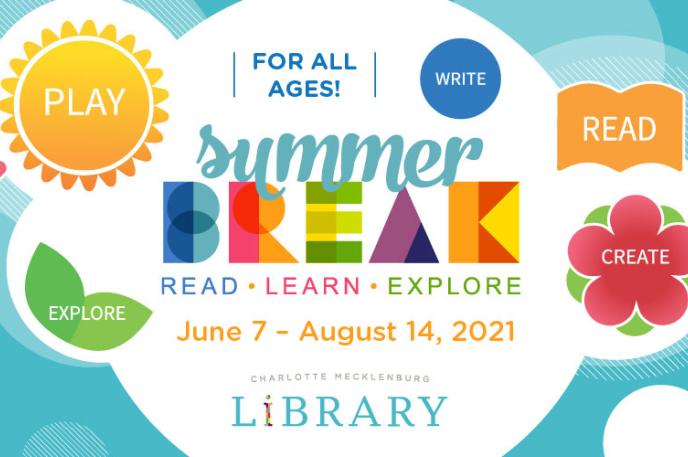
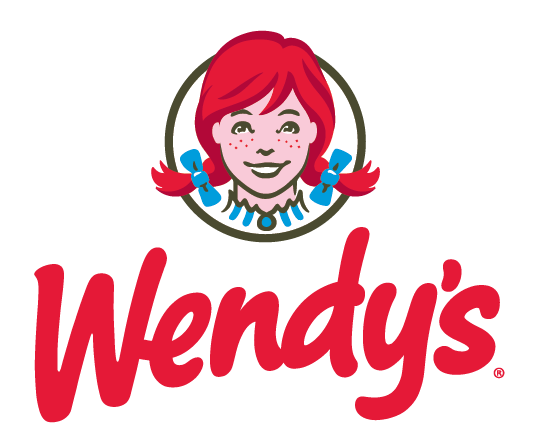
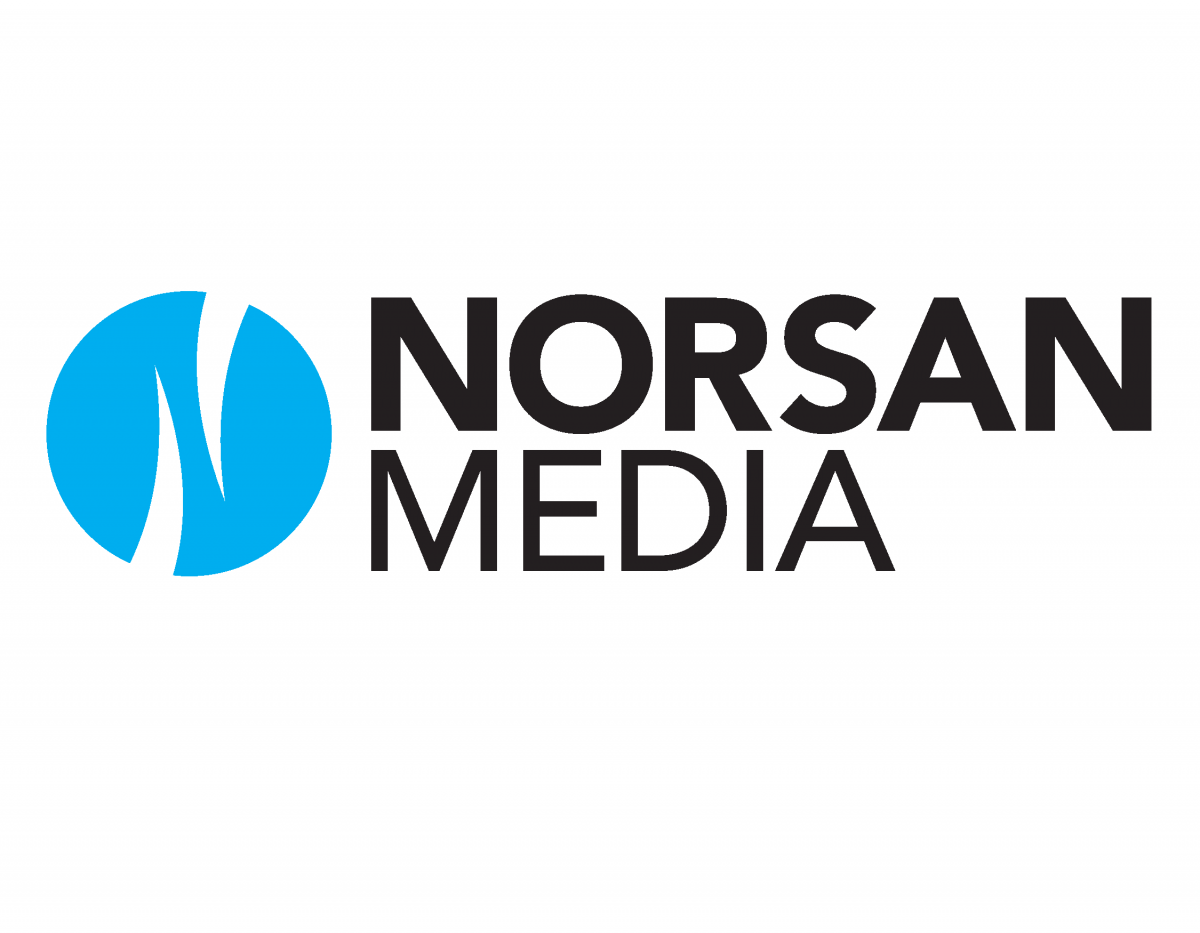
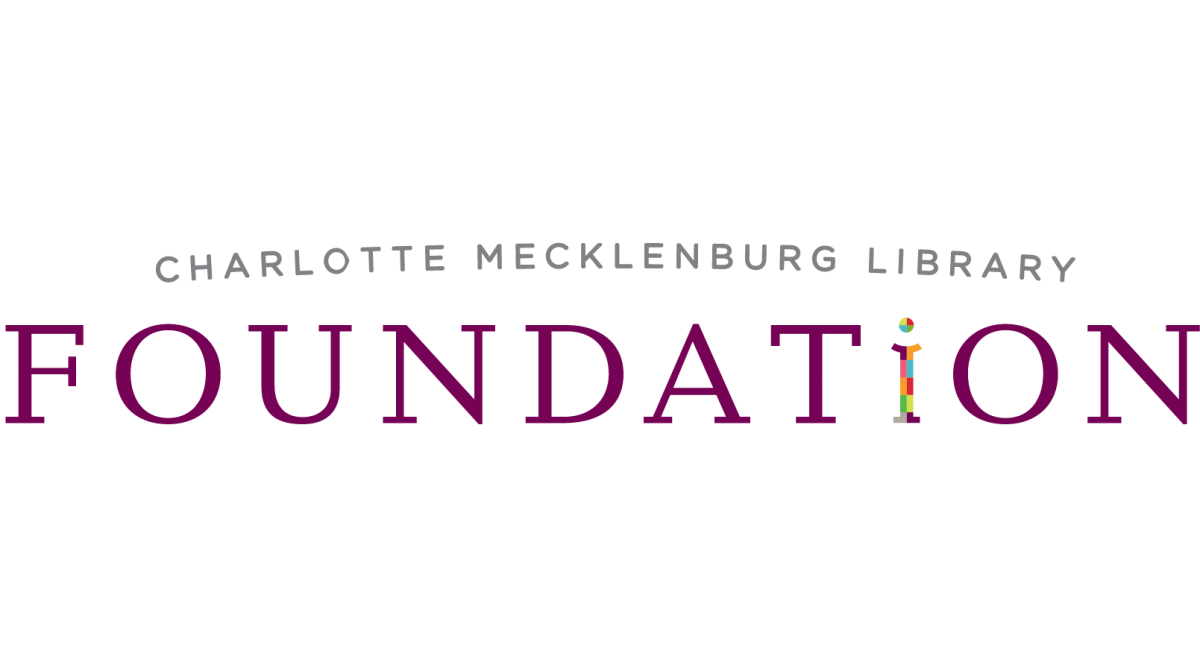

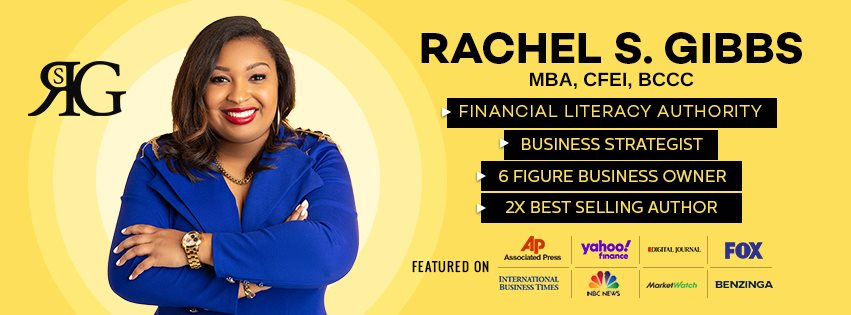
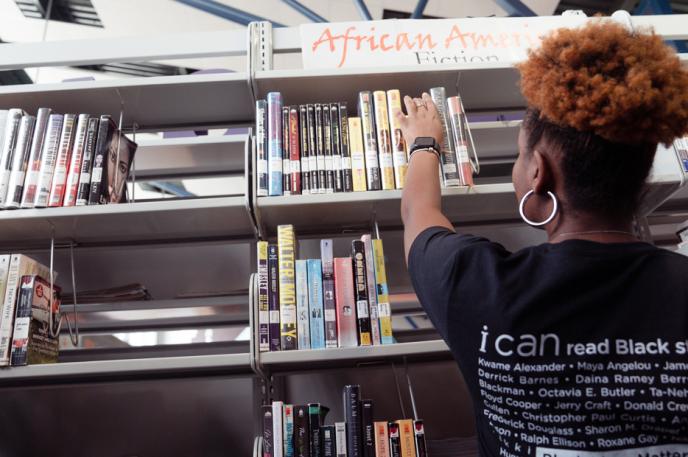
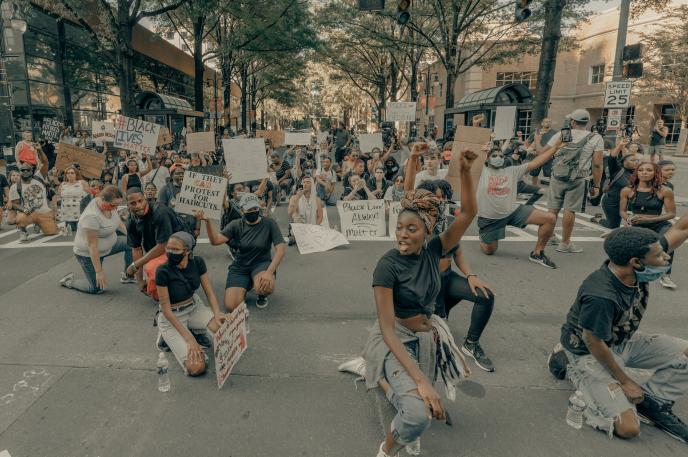
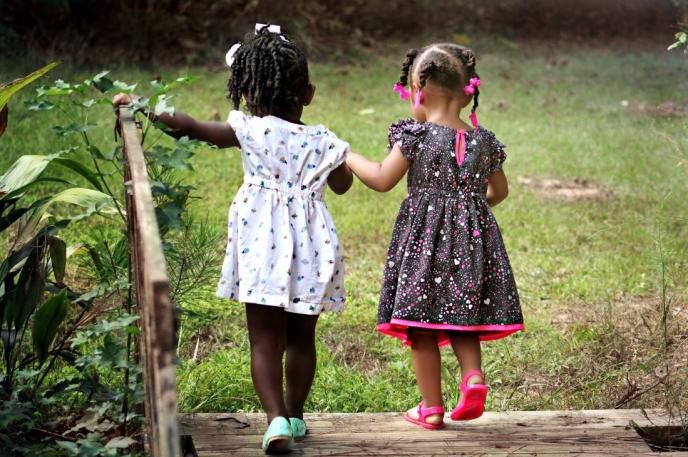
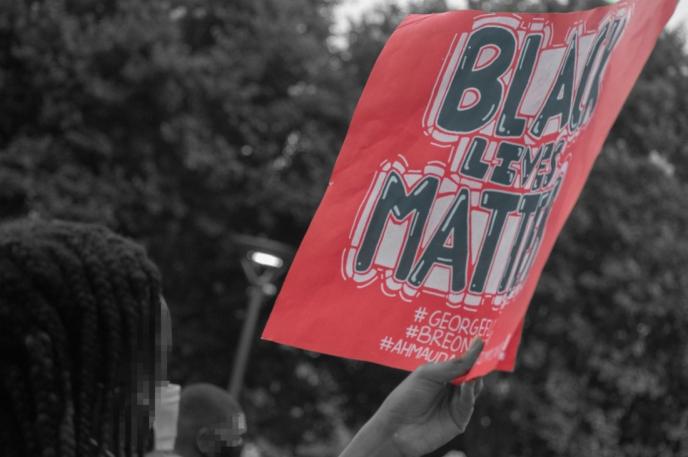


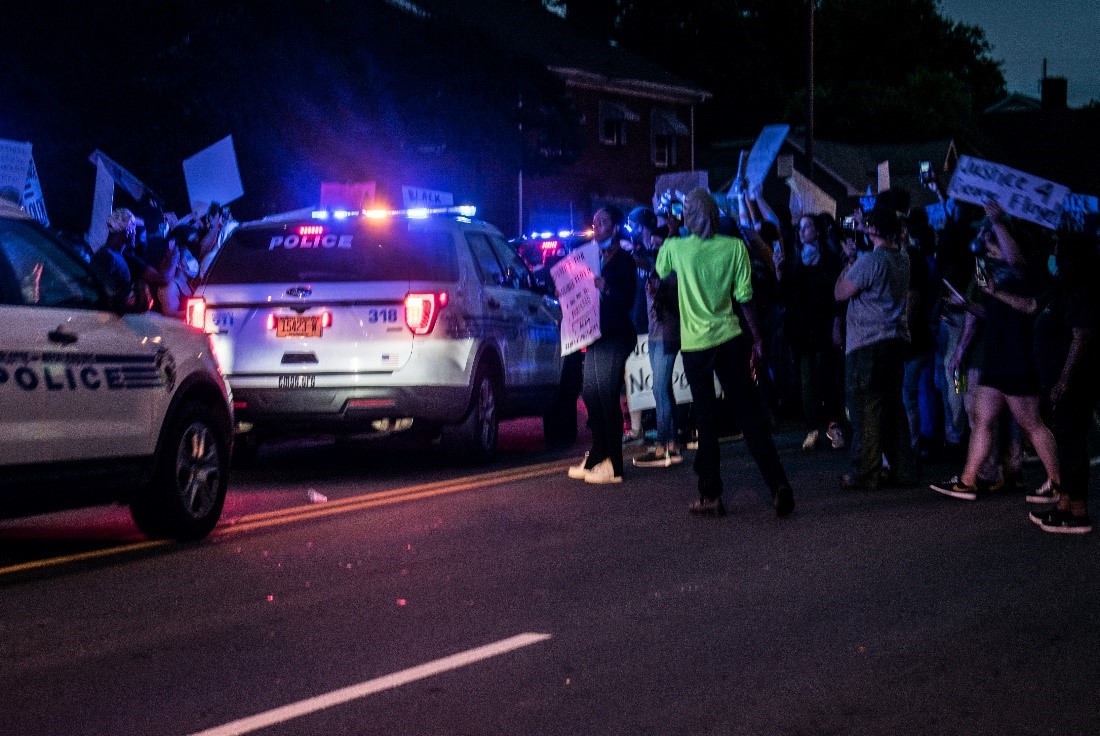
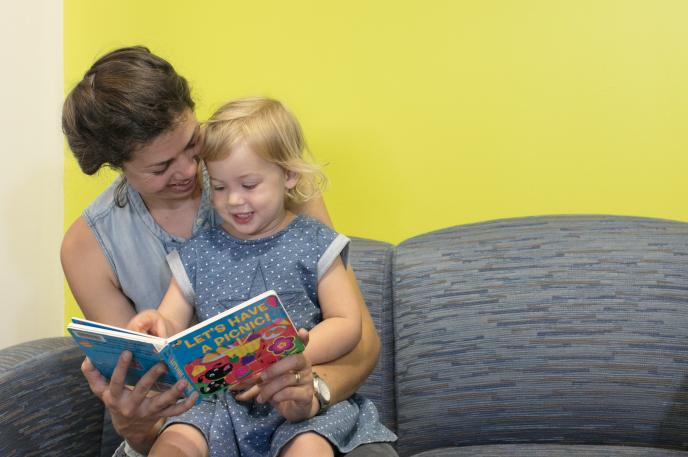
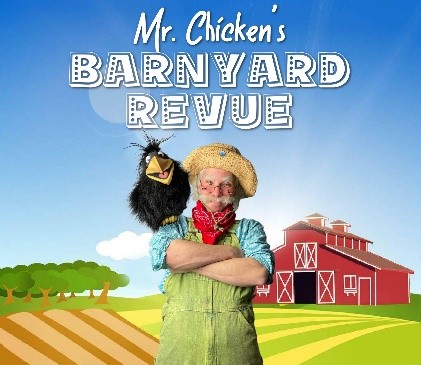



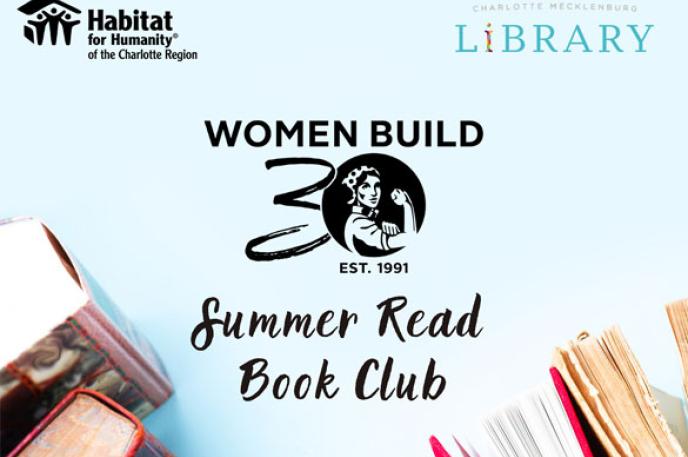
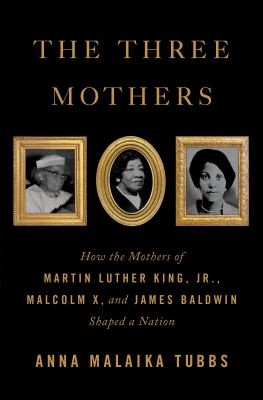 The virtual book discussion will take place from 6-7 p.m. over a series of three Thursday evenings:
The virtual book discussion will take place from 6-7 p.m. over a series of three Thursday evenings: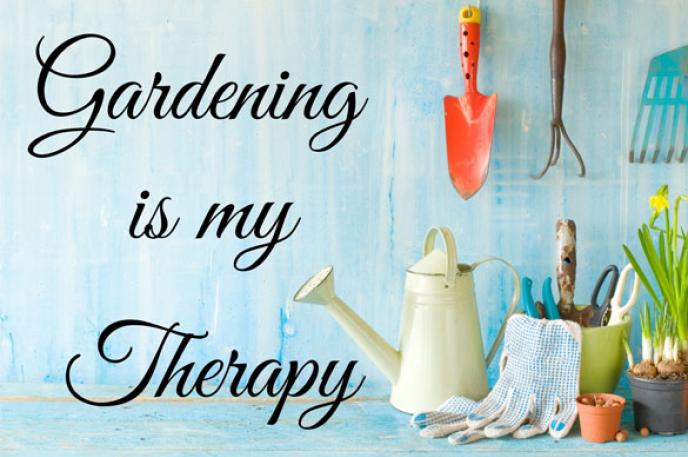
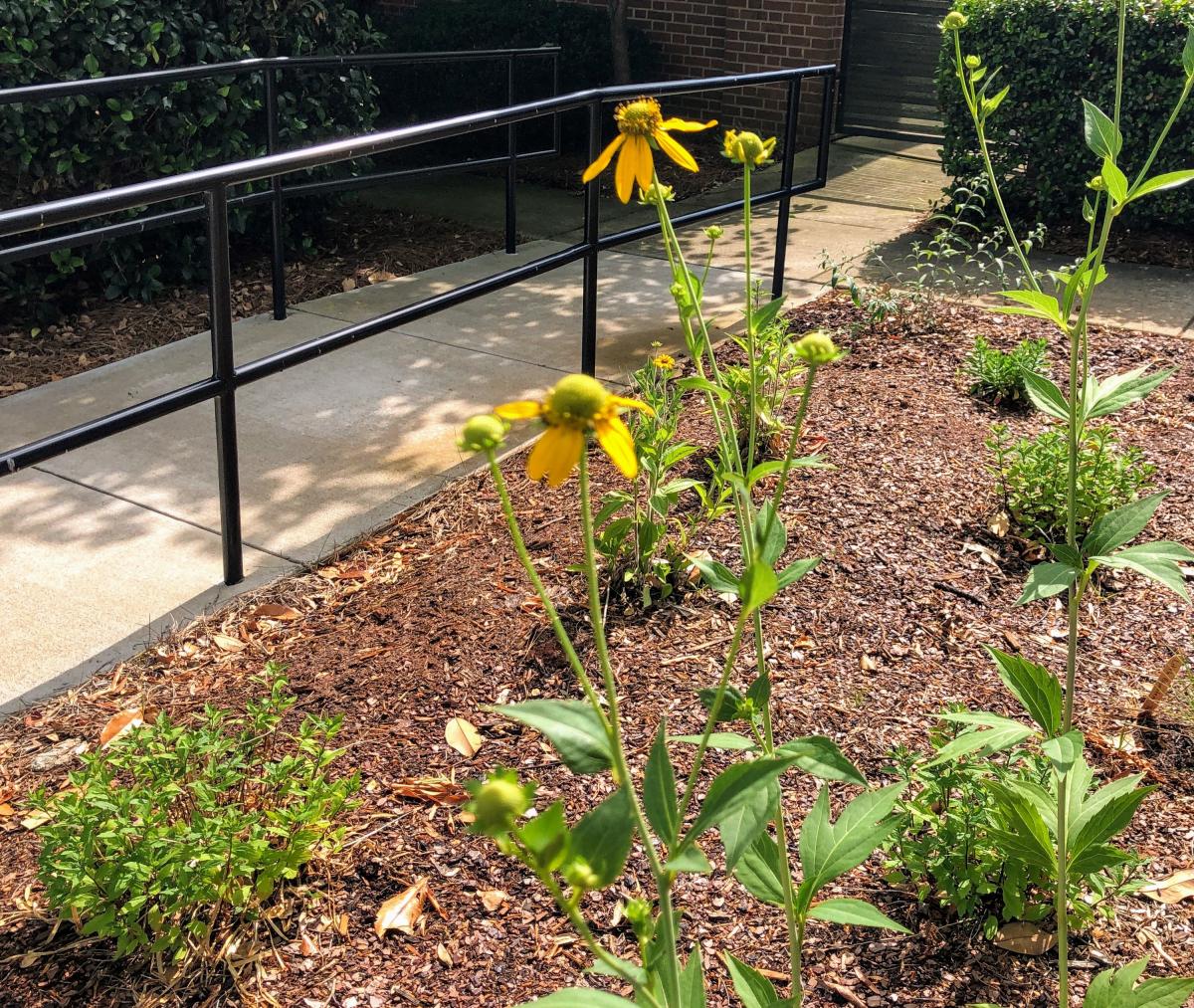 The original garden, known as the McKnight Reading Garden was created after the branch renovation in 2008. It was named in memory of library benefactor Mrs. Gayle McKnight and was designed by (then) student Murray Corbett, a project which earned her the Girl Scout Gold Award.
The original garden, known as the McKnight Reading Garden was created after the branch renovation in 2008. It was named in memory of library benefactor Mrs. Gayle McKnight and was designed by (then) student Murray Corbett, a project which earned her the Girl Scout Gold Award. 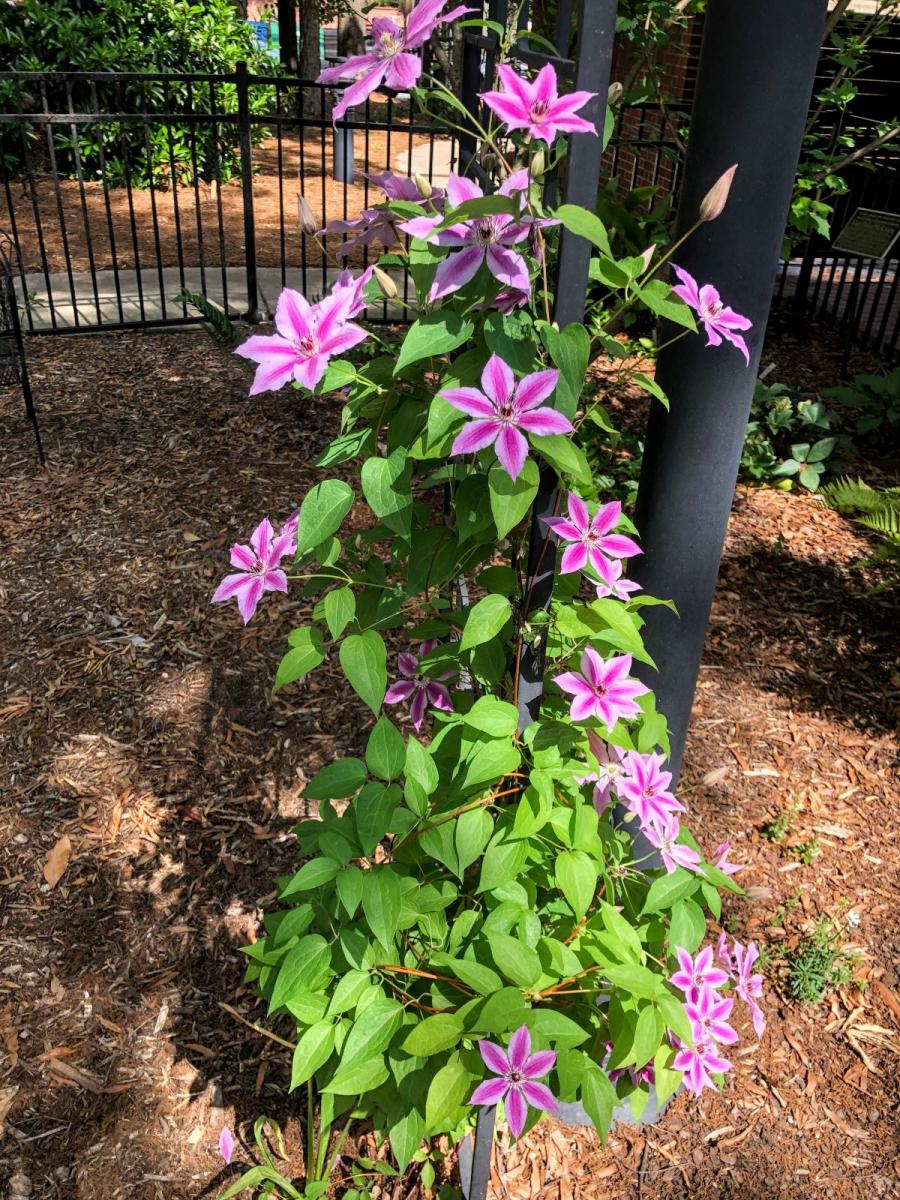 are designed to be an outdoor teaching and learning area on topics such as horticulture, the natural environment and land water or wildlife conservation. It provides the perfect accommodation for groups like our community partner Mecklenburg Extension Master Gardener Volunteers to conduct on-site learning and education.
are designed to be an outdoor teaching and learning area on topics such as horticulture, the natural environment and land water or wildlife conservation. It provides the perfect accommodation for groups like our community partner Mecklenburg Extension Master Gardener Volunteers to conduct on-site learning and education. 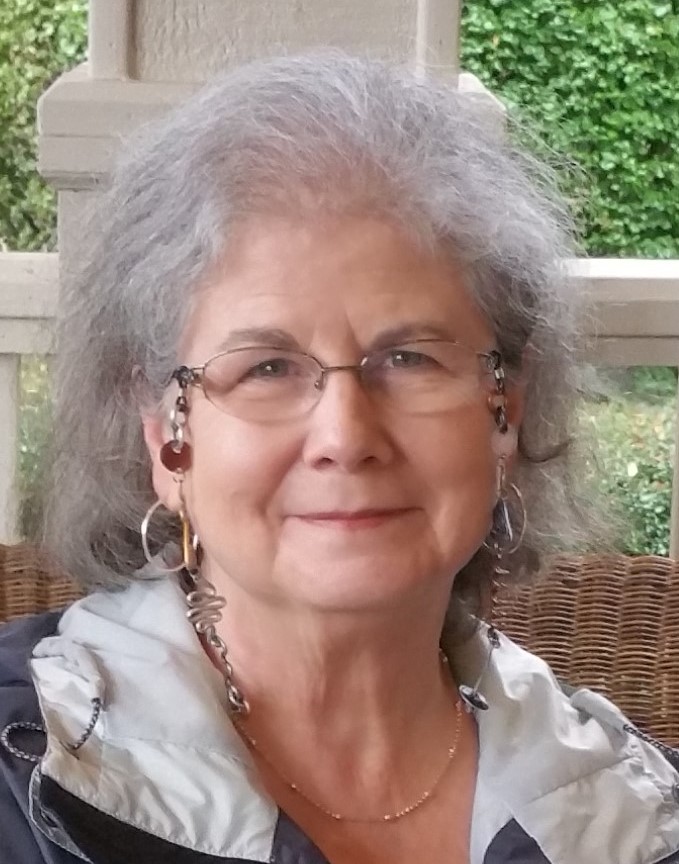
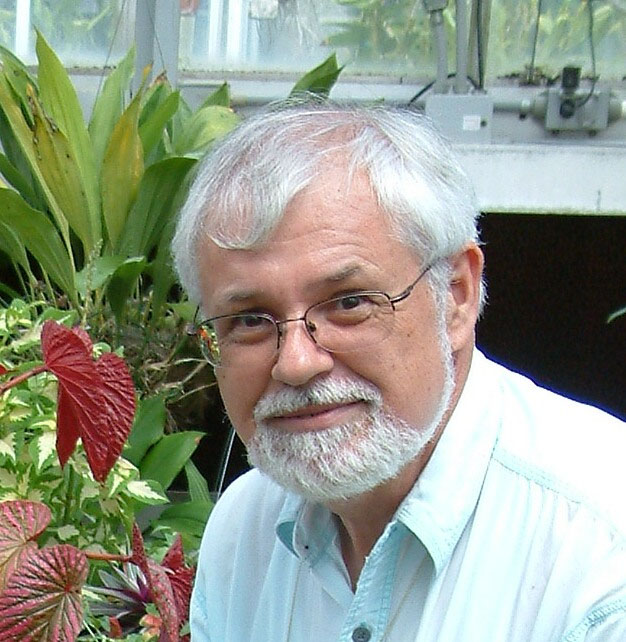 Dr. Larry Mellichamp is a retired Professor of Botany and Horticulture and was director of the Botanical Gardens at the University of North Carolina at Charlotte. Larry is a world traveler and expert on native plants of all kinds. He has received several teaching awards and written several books, including the recent Native Plants of the Southeast…the best species for the garden (Timber Press, 2014); and Bizarre Botanicals (2010) and The Southeast Native Plant Primer (2020) with Paula Gross. He is the 2016 recipient of the Tom Dodd, Jr. Plantsman Award of Excellence from the Cullowhee Native Plant Conference. He gardens at home in Charlotte where he lives with his wife Audrey. Register
Dr. Larry Mellichamp is a retired Professor of Botany and Horticulture and was director of the Botanical Gardens at the University of North Carolina at Charlotte. Larry is a world traveler and expert on native plants of all kinds. He has received several teaching awards and written several books, including the recent Native Plants of the Southeast…the best species for the garden (Timber Press, 2014); and Bizarre Botanicals (2010) and The Southeast Native Plant Primer (2020) with Paula Gross. He is the 2016 recipient of the Tom Dodd, Jr. Plantsman Award of Excellence from the Cullowhee Native Plant Conference. He gardens at home in Charlotte where he lives with his wife Audrey. Register